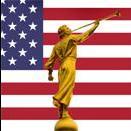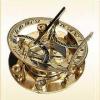Leaderboard
Popular Content
Showing content with the highest reputation on 07/22/20 in all areas
-
I feel like the ward I live in is pretty close to 50-50 on Democrats and Republicans. Members bring up politics far too often, IMO. Whenever I'm teaching a Sunday School class and someone interjects with a political comment, I usually respond by saying, "Hey, if you have something political to say, please save it for a testimony meeting." Politically-charged comments are inevitably going to irritate someone in the class. Most people can see that my comment is facetious, and it quickly diffuses an otherwise tense situation.2 points
-
Great talk given by Pres. Harold B. Lee entitled "The Iron Rod". Here is a video of part of that talk. An excerpt:1 point
-
If she'd stayed in Britain and done "princess stuff" - like opening schools, giving speeches at charity events, cheering up terminally ill people in hospitals - instead of creeping off in a sulk the moment she got bored with it, I don't think anyone would have cared two hoots that she was American. We like Americans. Its true we do make fun of them, but we make fun of everyone and everything - including ourselves. In fact especially ourselves: I don't know if the writers of Family Guy think they're offending us Brits by portraying us as beer-swilling cockneys with wonky teeth, but if so they've missed the mark by a long way! P.S. Classic British comedy, making fun of British and American stereotypes together: (Poor old John Cleese was an early victim of the "cancel culture".)1 point
-

Push for Utah to mandate statewide mask wearing
Midwest LDS reacted to dprh for a topic
I'm hoping to help her feel comfortable being in her backyard.1 point -
Same difference. Because, you're having a government forcing EVERYBODY - even those who don't carry the virus and can't possibly spread it - to wear one. There are so many assumptions that the government is making here. 1.) Everybody is a carrier. 2.) Masks are required to stop viral spread regardless of other methods exercised. 3.) Any mask - including non N95 standard ones - can stop viral spread. 4.) Masks can improve societal health more than it hurts... and the main thing - 5.) Stopping viral spread among a healthy population is the best way to deal with a viral pandemic.1 point
-
You think so? Where in Jerusalem is anyone exchanging their swords for plowshares, spears into pruning hooks and the thoughts of war being removed. Or are you saying that these are not "the last days"? And this thread is about temples - where in Jerusalem is there a temple? Keep in mind that Isaiah was in the northern Kingdom prior to the fall of the northern Kingdom. Jerusalem was built upon mountains but is obviously not at the top of the mountains. Isaiah introduces another word in verse 3 - the word is Zion. The particular ancient poetic structure of Isaiah is written in a bifid structure of Near Eastern Literary patterns and is the most complex example in all Hebrew scripture - which by format suggests parallelism (among other literary techniques) - meaning that the verses are intended to be understood to mean more than is expressed. - - If you like I can provide references from experts in ancient Hebrew and Jewish traditions. Jesus used parallelism as well in his parables and teachings with examples of living waters that do much more that quench thirst from the desert sun. The Traveler1 point
-

Push for Utah to mandate statewide mask wearing
Midwest LDS reacted to Jane_Doe for a topic
I'm not a fan of blanket you-must-wear-a-mask-everywhere-ordinances, because that's NOT using my agency to protect people. There are times that wearing a mask doesn't help anyone, and instead just makes things super hot and limits communication. Trying to enforce something that doesn't make sense is picking the wrong battle.1 point -

Temples And Protection
mordorbund reacted to Jonah for a topic
The cross became the earliest symbol. I believe any rituals and / or practices which they practiced are spoken of in scripture although some arose later out of human traditions. Several components of the Old Testament system became incorporated into the Roman Catholic system. Priests, garments, some washings, the altar, incense, and the holy of holies (where the eucharist is kept until it is needed). More is described here http://www.vatican.va/content/vatican/en.html http://catholicfaith.co.uk/ Politics became intertwined with religion in the Roman Empire.1 point -

.
carlimac reacted to NeuroTypical for a topic
1 point -
Conservatives working to loosen anti-pollution regulations are like people who don't want government mandated facemasks... they don't believe the pollution reduction rendered by the regulation is significant enough or even existent to warrant the restriction. And environmentalists use the same argument as mask-karens... if you don't approve of the regulation you must not care about the environment! It's so stupid it's not even worth a first-grade exercise in dialectics.1 point
-

.
carlimac reacted to NeuroTypical for a topic
Something citified folks often don't know - the further away you get from services/amenities/roads, the cheaper the land/house. We live on 5 acres, 10 miles away from the nearest town, and 30 miles away from my work (50+ miles when I worked in Denver). I've commuted to work for 20 years now, quite a happy camper. We're hardly rich. It can be done. I hear you clarifying "I can't afford that", with language of "would like" and "prefer" and "don't want" and "doesn't appeal". I've found that joking about owning a minefield, is as satisfying as actually having all that stuff. Our protection dog died of old age years ago, the attack turkeys do the job these days. You don't need to rule out living in a remote location. Here's a pic I took looking out my back door one morning: This is not an expensive place to live. Halfway between Colorado Springs and Denver, out of the trees, away from the mountain.1 point -
It SHOULD be harder to hold most liberal views in Church than it is to hold most conservative views. It's also ABSOLUTELY necessary to call it out when seen. I don't want you asking my children the hard questions to get them to consider alternative views. I want you to teach them the gospel and teachings of the Prophets. Period. There were two groups of members that made my conversion more difficult than it had to be: those who loved to sit in class and discuss things they "believed" were true but had zero teachings to support them and those who thought it was cool to be "edgy".1 point
-

Liberals in the Church
SilentOne reacted to Carborendum for a topic
MOE, I often find your posts to be very thoughtful and thought-provoking. And this is one of the best. Much of it is stuff I agree with. Surprisingly little is stuff I disagree with. And some things that I really haven't given much thought to before. I realize you're busy (as you stated) so I don't mind if you don't reply to my response. But I figured I'd go ahead and share my thoughts with the forum (of which you are an important part). I can understand this mindset. But the reality I see behind anyone leaving the Church is that we leave because we believe our own mindset, or comfort, or... whatever... is more important than renewing our covenants with the Lord. Perhaps it is because we've simply forgotten how important covenants are. Perhaps we don't even think about it. But that is exactly the problem. If we are so focused on being ostracized having beliefs criticized disagreeing with leadership 1000 other reasons that we neglect the one indispensable purpose of church attendance -- renewing our covenants -- then that is the real underlying motivation for leaving. All these things (as valid as they may be) are merely convenient excuses when compared to the importance of the sacrament. I say this from my own experience (I left the Church for a time) as well as every other person I've personally witnessed leaving the Church. Yes, they have their reasons. And from every earthly, temporal, mortal measure, they are very valid and understandable reasons. And as fallible humans, I can't blame them. But covenants are more important than that. The fact is that if you genuinely don't have a testimony, that is a different story. But in my experience, it is the very small minority that has that as a genuine underlying cause to leave. That's what they state quite often. But those whom I've been around as I witnessed their descent... they were blind to all that led up to it. They only saw the final step, not all the dominoes that led up to it. It is actually quite honest of these friends of yours to be able to admit that it was because of other causes. Keep this in mind when I comment below. I've never had anyone tell me that I couldn't disagree with them. If they have, I ignored them anyway. I have had several experiences like this myself. And life went on for all of us. I don't know why this needs to be dwelt on. If that is an absurd conclusion, is it possible that your perception (of said conclusion) was flawed? Perhaps some or many of these people saw you as we see you: A very liberal and somewhat heterodox Saint that is still thoughtful and faithful about how he approaches doctrine and beliefs. The second sentence there is the important part. But it seems that you're still holding the first sentence as being the more important. I'm a conservative who regularly works with one of the very few very liberal fabrication companies in Houston. I know that if I were to ever talk about politics, they'd probably cancel my contract and never call me again. A liberal in the church may be challenged and met with suspicion but you're not kicked out because of your positions. The fact is that when your contribution to the conversation is that we should have abortion on demand and gay couples should marry in the temple, you shouldn't be surprised if you're lumped in with exactly the types of people that SHOULD be met with suspicion. The primary reason you're not treated that way on this forum (for the most part) is that we've had enough discussions that we have gotten to know you and see/feel your faith. While we still disagree with you politically (and we will still debate) we know your faith makes you our brother in the gospel. Yup. That was simple hypocrisy. The bishop should not have allowed that for ANY non-official Church business. The level of schaddenfreude displayed here is showing you're doing a lot of the same things you're complaining about. I've always admired that fact that you tend to be consistent in your positions and you often admit when you have facts shown where you are wrong. Perhaps you could take a moment and realize that you're doing a lot of the same things to others that you're complaining about yourself? Yes, yes, payback and all that. Sauce for the goose. I understand that. And I don't begrudge you that. But if you're looking for the solution to this never-ending battle, consider a different strategy. In a way, that bishop actually did you a favor that you did not take advantage of. Church is supposed to be very welcoming to those who are "lambs" in the gospel. But as we mature into "sheep" we need to be a little uncomfortable. We need to look in the mirror a lot more and ask,"Is it I, Lord?" I'm not justifying the bishop's behavior. One does not applaud Satan for simply playing his role as the opposition to God (opposition in all things). I'm saying that you can't really change others. You can only change yourself. That "if" is very important. If you have statistics on this, I'd really appreciate it, but absent that, I'd be willing to bet dollars to donuts (strawberry filled, please) that the vast majority of "liberal Mormons" are not as conscientious as you. They ARE out to change the Church in their own image, not the Lord's. You just don't realize how rare you are. And why do you think that is? Because where you are is on a razor's edge. You, yourself, described yourself as having one foot in and one foo tout. At some point, you will have to choose. I hope and pray that it will be on the Lord's side. You recognize this. So, all the more reason to simply remind everyone that the Church is supposed to be politically neutral. There is a surprisingly short list of correct completions of this sentence. And abortion is one foot in and one foot out. It is not surprising that many people would think it fully qualifies. The sad part is that I get the impression that you don't even see it as one foot in. Remember the quote above about "the evils of abortion... gay marriage"? Both abortion and gay marriage are very evil. Yes, abortion can be necessary sometimes (as outlined in Church guidelines). But so is war or killing someone in self-defense. Is anyone going to applaud war? Should we celebrate war? Should we celebrate having to kill anyone -- even in self-defense? I know some do. But the fact is that these are very bad things that were necessary because the alternative was so much worse. That doesn't mean we need to make it easy to do for everyone at any time. As for gay marriage. IT IS EVIL! And that is one thing that will never change. No ifs ands or buts. This is the one thing that I 100% disagree with you on in this entire post. I agree, but would use different wording. It is politically neutral, not "apolitical". So, why are you so free with declaring political views at church? Why not simply remind everyone that church is supposed to be politically neutral? That should shut up most conversations about politics. 100% agree. That's a very important "But". Of course we always question things. That is how we know we're not a mindless cult. But there is a difference between "questioning" and "starting from a point of suspicion". That is where most people fail the test. I'm not too far from your position. I don't "support" it. I'm agnostic to it. Because I'm agnostic to it, I just figure if it happens it happens. Until then, if it ain't broke, don't fix it. Do you see it as broken? Good. And conversely, I don't see any reason to adhere to conservative positions because of social pressure if the Church changes to liberal positions. I don't see how anyone could disagree with such a broad statement. Well, I don't agree with the characterization of that statement. I think it just comes from misinterpretation of the actual words of guidance we've been given. As for the "homogeneous thought pool", depending on the definition, this could be good or bad. We are, after all, supposed to be "one". The message turning into "repent or get out"... again characterization vs definition. Are we not all supposed to be constantly repenting? And if we refuse to repent, are we not going to be cut off from the Lord? It may only sound like that because the receiver hears it as coming from a human rather than the Lord. It is akin to Laman and Lemuel saying "it is a hard thing (Lehi) required" of them. But it was not Lehi. It was a commandment of the Lord. Yes, I'd agree. But I see it as coming from your attempts to sit on a razor's edge. You see it as coming from persecution for your beliefs. Agree to disagree. Is it that Mormon culture took that turn? Or is it that political liberalism took a hard turn to go away from God? How many liberal sources say they want to eliminate God from our public lives? Not just "separation of Church and State" but outright get rid of religion. (if you say that "only conseratives say that" I'll give you a list like I did with the "all whites are racist". Abortion is a great evil. But liberalism came away from the perfectly reasonable conditional abortion position (which was quite liberal when the Church adopted that position) to abortion on demand. Did the Church change? Or did liberalism change? Gay marriage is simply a perversion of God-given procreative powers. There is not amount of political neutrality that is going to soften that simple fact. Liberals want to get rid of the Constitution. And the Church sees it as divinely inspired. These are all positions that the Church has been pretty consistent on. But pop culture, not Church culture, has changed over the years. Strange that political liberals changed with their politics rather than staying consistent with the Church. One reason doctrinal liberalism is more highly discouraged than doctrinal conservatism is that true religion, by its very nature, will be conservative. Religion is supposed to be immovable as the world changes around it. God is an unchanging god. Therefore, the changes from religion should either be clearly necessary with overwhelming acceptance due to changing society, technology, information, blah blah blah -- or pandemic lockdowns. Direct Revelation from God that it is time to change something. Most of the things that doctrinal liberals advocate do NOT abide by either of these criteria. The great majority of the time, it is because people just think they know better than the Apostles do. Meanwhile conservatives at least have the security that they are abiding by what they see in scriptures and what we hear from living Oracles. Even if conservatives are wrong, they at least have that security that they can have a clear conscience before God at judgment day. A doctrinal liberal, OTOH, if right, no problem. If wrong, they can only say "I thought I knew better than your chosen Apostles." As much as I appreciate liberals as conscientious as you are, such is a rare find. My personal experience has been that most liberals simply think they know better than the Apostles. End of story. Thus, I hope that you don't gain more influence. But it may already be too late. While hypocrisy is a very human failing, the primary difference between political liberals vs conservatives is the level of group think. This is to the point that if a black man doesn't vote Democrat, you're not really black. And a white woman is accepted as a black woman just because she wholly buys into the mentality. Yet, the variety of thought among conservatives is very broad in comparison. I could also give you a list. But the very fact that cancel culture is almost 100% a liberal creation should tell you that it is largely one-sided. I have read all the background you have offered. And I get it. But just looking at statements like this over and over again keeps bringing back to center stage how much mental energy you have spent on judging people in the Church based on politics rather than faith. Isn't that exactly what you're accusing them of?1 point -

Liberals in the Church
Suzie reacted to MarginOfError for a topic
I'm probably going to end up kicking up a hornet's nest here, and starting a fight I don't have the will power to finish. But this is an issue that strikes very close to home. Let's get some of the basics out up front. I am what pretty much everyone would consider a "liberal in the Church." I vote liberal politically, and a number of my personal beliefs with respect to our religion fall outside of the orthodox views. I have multiple friends that share many of these views that have left the Church. I also have multiple friends who share my views that have remained in the Church. The Personal Experiences (skip if you don't want to read the novel) The most succinct thing I can say about being a liberal in the Church is that the risk of social ostracism is very high. And the vast majority of my friends who have left the Church have done so more because of the social ostracism than because of a failing testimony. Perhaps the most keen example of this is a friend of mine who joined the Church as an adult convert while attending MIT. I name-drop the school primarily to give a perspective of this being a person who was intelligent, motivated, and capable. It's important to note that as an adult convert, many of her political opinions and preferences were fairly established before she joined the Church. She met and married her husband while in college, and they went to Utah for his medical residency. While in Utah, she was on the receiving end of a lot of subtle and some not-so-subtle reminders of "the role of women at home." Some people even outright asked her what was the point in her getting her Master's degree. She wasn't going to use it once she had kids anyway (spoiler, she wasn't able to have kids, not that it should matter). In fairness, I suspect the people perpetuating this nonsense were the minority, but it was enough to make participation at church uncomfortable. After about 15 years and a few moves, they ended up settling in New England. Her Relief Society presidency took it upon themselves to cure her of all of her liberal political beliefs. Their approach: asking her to teach lessons on "the evils of abortion," and "the evils of same sex marriage." They were overt in their intentions that if she would just prepare a lesson on the subject, she would start to see things the Correct Way (TM). She eventually stopped going to church because she was tired of being a target and a pet project. So let me make this clear: It is a real challenge to attend Church and be spiritually fed when you're wondering when the next attack is going to come. From my own experience, I have been exceptionally lucky. Coming off of a mission and entering college, I was about as straight laced and orthodox as a person can be. Believe it or not, at the time, I would have been considered a biblical literalist. My course of studies led me to start questioning some of the assumptions behind my beliefs. I had incredibly supportive family and bishops that encouraged me to explore and study these questions. They discussed issues with me. And while they were free with their own opinions--that often differed from the ones I was developing--they never told me that I couldn't disagree with them. I was also very lucky to be called into semi-prominent positions of service early on. But that can be a crap shoot for liberal Mormons. In the first ward I attended after finishing college, there was no scout troop. I chose to volunteer with a community based troop because I wanted to do something valuable with all the free time I had come into (I had been studying 12-14 hours a day for months leading up to my thesis defense). About two months later, the bishop of that ward asked me to comment on a plan he was devising to have the young men of three wards in the area meet once a month as a troop, once a month as patrols (in separate buildings) and then the other two weeks would be non-scout oriented activities. I suspect he was trying to ease into calling me to help run the program. Instead, I excoriated his idea, and said if he was going to run a scout troop, he should commit to it. But running half a program wasn't going to be of any benefit to anyone. He hardly ever spoke to me after that (but that vision of a scout program never developed). A few months later, he was released. The new bishop chose to retain the same two counselors who had been privy to my review of the scout troop idea. Apparently, those two had more appreciation for my willingness to offer criticism and honest feedback, and soon after I was called to be the ward clerk. And honestly, that calling as clerk is probably the reason I have been able to remain comfortable in the Church and be as liberal as I am. Because whatever bizzarro, unorthodox, or out-of-the-mainstream ideas I was spitting on any given day, I always had implicit status of "worthy" because I was in that inner leadership circle. I missed church about once a month to go lead scout activities. Any chance I could get to Church, I would, but it usually meant I showed up in grungy -- sometimes smelly -- camping clothes. And while I knew there were people that questioned whether I was keeping the Sabbath holy, no one ever questioned the strength of my testimony or worthiness because I held a semi-prominent position. That's an absurd conclusion, and I won't defend it. But nonetheless, I was challenged less for my unorthodox beliefs because of the leadership position I held. That changed soon after I was released as the clerk in that ward. The sequence of events occurred as such. First, I asked to be released so that my spouse could continue to serve as Young Women president after our second child was born. We just couldn't handle both being on the ward council at the time. A few months later, Brother X moved into the ward. And then a few months later, Brother X became Bishop X. Bishop X had no history with me, and was a very different kind of bishop than the one I had clerked for. At one point, I made a statement about gender discrepant language in the temple ceremonies, trying to illustrate and explain to people why that bothers some people in the Church. I got called in to meet with the bishop where he threatened to take my temple recommend away for violating my covenants to not reveal what happens in the temple. I had to argue with him that nothing I had said violated any sort of covenant, and if he'd be more comfortable understanding why I believed that, perhaps we should go to the temple and have a discussion about it in a setting that he was comfortable discussing it. He didn't accept the invitation. He also didn't pull my temple recommend, but I was very clearly on the outs with him. For the rest of the time he was bishop, Church was hard, because there were regular instances where my commitment to my faith was challenged because of the things I believed. It wasn't just me, either. Most of the liberal leaning members, especially women, would describe discomfort with Church activities because there were consistent swipes at the illegitimacy of liberal beliefs. One of the more amusing stories from that time frame was during the run up to the 2012 election. The ward ran a listserv for members to e-mail play date invitations, or list furniture they were selling/throwing out. One day, an e-mail came across asking for support for a Romney campaign something-or-other. I sent an e-mail to the bishopric expressing my discomfort with political activities taking place over a listserv for the ward. The response was pretty dismissive. They didn't see any problem with it. So I promptly sent an e-mail out over the listserv asking if anyone was interested in purchasing a "Mormons for Obama" bumper sticker. I'd place the order and pay the shipping, and so anyone that wanted one just needed to pay for the sticker. Almost immediately, a notice was put out that political discussions were not appropriate on the listserv. Antagonizing the bishop like that probably didn't help my cause, but it was totally worth it. Blessedly, Bishop X wasn't bishop very long. 18 months and then took a job overseas. Although I didn't hold any prominent callings under the new bishop, he was a lot more accepting of divergent viewpoints himself, and it started to be much more comfortable to be at church again. When I moved to my current ward, a little more than five years ago, I was almost immediately called to be a clerk. I've also taught Gospel Principles and Institute in that time. And again, being in that semi-prominent position has come with the side benefit that very few people question my commitment to my faith, regardless of how crazy any of the things I say are. Again, I've been blessed with great bishops (I'm on my third in this ward) and a good stake president. I've had at least two sets of missionaries complain about some of the things I've taught in Institute*. The bishops and stake president have always been backed me up and said that me offering challenging questions or alternate interpretations isn't a problem if I'm trying to genuinely help the students explore their faith and develop a familiarity with receiving their own revelation. But here's that catch. While it has been great the past five years, I get really anxious when a new bishop is being called. Even though I've had bishops that are supportive, I can name a few men in the ward that, if they were to become bishop, would probably make church very uncomfortable for me. Being an election year, we're currently dealing with heightened political feelings, and there have been some instances of members saying "you can't be a member in good standing and support abortion." When you get those kinds of statements coming from people in leadership positions. And here's the thing: it's completely unnecessary. * every Institute class I taught started with a disclaimer that I am very much exploring the content, and ideas I spout off on any given night may or may not be good ideas. And anything that I believe today may be something I don't believe five years from now. I've always tried to encourage the ability to safely explore and learn over dictating what I perceive to be true. For the most, it seems to have worked, as my students never seemed to be uncomfortable saying "I disagree with you." I Guess This is My Thesis (yeah yeah, it should be near the top) The Atonement of Jesus Christ is apolitical (probably a liberal idea, but I stand by it). The teachings of the Church should likewise be apolitical. Repent of your sins and come unto Christ. There is extremely wide latitude for political and social disagreement within that spectrum. There is extremely wise latitude for disagreement in how we interpret scripture and the guidance from our prophets. I do not consider homogeneity and conformity of thought a virtue in the Church (also probably a liberal idea, but I stand by it). Unity and disagreement are not mutually exclusive. And so I try (and sometimes fail) to respect opinions and ideas from members that I disagree with. More often than not, I want them to feel comfortable saying what the believe, and if possible, why they believe it. I have things to learn from them, and we are a better community when we understand and accept each other, regardless of the things we disagree or agree on. Regarding Liberals Attempting to Change the Church I believe firmly that there is room for questioning some of the things we purport to believe. I even more firmly believe that there is room to question some of our practices. But I also believe that those questions should follow a process of study, discussion, and prayer. I would be considered a liberal mormon, because I support the idea of allowing women to hold priesthood. But I don't support that idea because "EQUALITY." I honestly just can't see any reason they don't other than "because we never have." I know there are other arguments, but I don't find them compelling (and I'm not willing to discuss it in this thread**). Importantly though, I have reached this position after years of careful consideration. Changes to the church should not be made simply to fit the popular social issues of the time. So even as a liberal mormon, I hold that conservative approach. But that doesn't mean the Church can't or shouldn't change. It can and it should. And it will. Sometimes in ways that I favor, and sometimes in ways that I don't. ** I've spent too much time on this subject as it is, and if I don't get two weeks of work done before the end of next week, I won't be able to go to Scout Camp. Regarding Conservatives Attempting to Change the Church This is one that we should be wary of as well. As I mentioned before, taking stances like "No one can be a member in good standing and support abortion" is an attempt to change the Church into a homogeneous thought pool. The message that comes across is "Repent or get out." Those kinds of attitudes need to be rooted out in the Church. It's Genuinely Harder to Be Liberal in the Church That it is to be Conservative I'm just going to state this as fact. In the 20th century, Mormon culture took a hard conservative turn that intermingled with political conservatism. As political tensions increase, the fact that there are more conservatives in the Church will inherently make it more hostile to liberals in the Church. As far as doctrinal conservatism vs doctrinal liberalism, conservatives will typically be more hostile to liberals than liberals will be to conservatives. I'm excluding from this discussion elitist jerks that are convinced that if you don't agree with them, then you're a blithering idiot. But we have to understand that doctrinal liberalism is an existential threat to doctrinal conservatism. For example, if you are a biblical literalist, evolution is a direct route to atheism. On the other hand, doctrinal conservatism is merely an annoyance to doctrinal liberalism. Those facing an existential threat will always react more aggressively. As Liberals Gain More Influence in the Church, They Must Wield Their Influence Responsibly And this is hard to do. We often want to call into leadership people who agree with us, or who are like minded. But we cannot afford to do that. It would be a tragedy of incomprehensible magnitude for liberals to wield their influence to turn ostracism onto conservatives in the way we have felt it. Church is a place to be uplifted. And I struggle with this one. A lot. There are an unspecified number of individuals in my ward that are very conservative. And when we consider leadership openings, I regularly find myself advocating against calling them. I've often had to take several days to try and sort out if my advocacy is legitimate or born out of my own biases. I've been lucky so far in that any time one of these individuals has come up as a possibility, the bishopric is generally unanimous in choosing not to call them. But I still feel great discomfort at the possibility that I may be excluding people in the way that I felt excluded in times past. I've definitely lost track of where I was going with all of this. But let me just close by saying that we need to be very careful pitting "liberal" vs. "conservative." We cannot afford to allow ourselves to become opponents. We are on the same team and need to learn to work as a team.1 point -
I was eight years old when President Lee gave this address. I don't remember it from that time, but I have studied it many times since. I was also aware of how words of the time were used, and became more aware as I grew up. The word "liberal" had much the same type of political connotation in American society of 1971 as it has today. When President Lee quoted Elder Widtsoe about "liberal Mormons", it's obvious to me that he was speaking in reference to those of his own day, in 1971, using the term as it was used politically. Throughout my life, I have found this to be almost unerringly true. I suspect it has to do with the absolutism that infects all American political liberal thought today, that their opinions are The Opinions and no others are worthy of consideration. This sort of implicit pridefulness inevitably leads to ruin. However that may be, those BYU students who proudly proclaimed themselves "liberal" in the 1980s while I was a student there eventually either left the Church or rather dramatically shifted their sociopolitical preferences. Since leaving BYU, I have seen time and again the close relationship between Saints who call themselves "liberal Mormons" and Saints who fall away from the gospel. There certainly are exceptions; I have a brother-in-law who considers himself a liberal Democrat (though I'm not convinced he really is) but who is solidly converted to the Church and the gospel it proclaims. So it's possible. But in my (non-statistician) judgment, the correlation is far too high for this to be mere coincidence.1 point
-

Push for Utah to mandate statewide mask wearing
Midwest LDS reacted to NeedleinA for a topic
Also Just checking the trigger level of the thread thus far.0 points -
0 points






